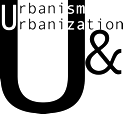The Next Urban Question. Themes, Approaches, Tools
The PhD program in Urbanism of the Factulty of architecture in Venice (IUAV) will host the sixth International PhD Seminar - Urbanism & Urbanization in the autumn of 2011. Theme of this edition of the Seminar is The next urban question - themes, approaches, tools.
The seminar invites PhD candidates working on a dissertation topic relating to the theory, history or practice of urbanism to present their work and thereby seeks to confront and discuss the themes and approaches of different international PhD programs in urbanism and the related disciplines.
Following a biannual cycle, the VI International PhD seminar will follow the first International PhD seminar that was organized by KU Leuven in February 2004 and others by UPC Barcelona, IUAV Venice, TU Delft.
Three main aspects can be identified today that define an “urban question” different from the past: first, the growing distance between the rich and the poor, second, the environmental risks, and third the mobility crises. The ‘question’ is and will be ‘urban’ because it is in the urban context that the largest part of the world population lives. It is in the context of the city that the question is most apparent and gains a sense of urgency.
The first aspect asks for a reflection on spatial and social justice, questioning the ways in which social opportunity is spatially distributed and seeking ways to foster equitable forms of spatial differentiation.
The second aspect, the environmental crisis, reveals the problem of a democratic solution (environmental justice) and demands critical review of the way in which urbanism has began to appropriate the ecological agenda.
Even more so, the mobility question (understood in the broadest sense of the word), poses a direct threat to the urban condition as new (neo liberal) governance models introduce new and hard lines of in and exclusion between plugged an unplugged, connected and bypassed groups and individuals.
All three aspects demand a new engagement of design at different scales, building new arenas of designerly research and original knowledge production. Taking up this engagement requires reflection on the epistemological status of design (as knowledge producer), on the role of design in the exploration of alternative futures, on its capacity to bring about effective change.
With the help of ongoing researches and the contributions from the participating universities, the seminar aims to document and discuss the ways in which urbanism is changing, studying the perspectives that are being adopted and their genealogies. We invite presentations of different forms of urban research, urban analysis and critical design research which while presenting the case under investigation – critically explore the general theme.




